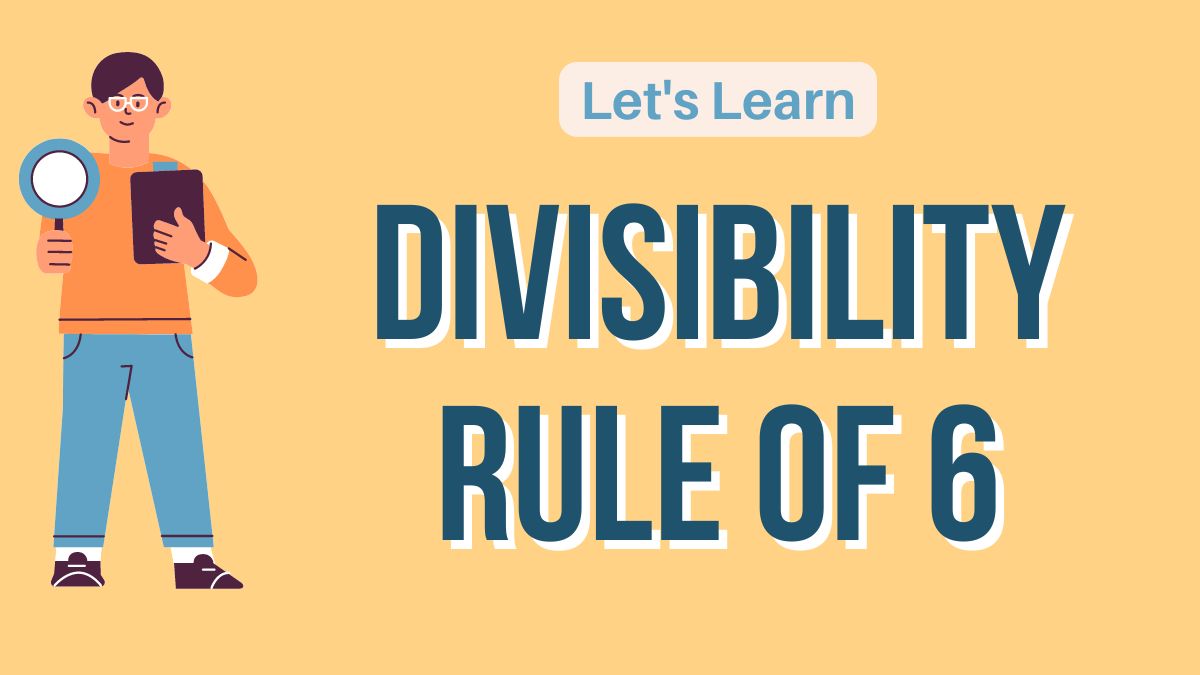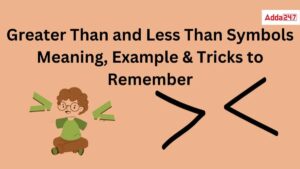The divisibility rule of 6 is a useful technique in math that makes it easier to figure out if a number is divisible by 6. This rule is especially handy in mental math and different problem-solving situations. Students who know about the divisibility test of 6 can easily solve questions in a quick time in competitive examinations. In this article, we will provide you with a detailed knowledge about the divisibility rule of the number 6.
Divisibility Rule of 6
Divisibility is when one number can be divided by another number evenly, without having any leftover. Put simply, a number n can be divided evenly by another number d if the result is a whole number. In other words, n is said to be divisible by d if it gives a whole number as a quotient and does not leave a remainder. One important divisibility rue exists for number 6.
The divisibility rule for 6 is a particularly handy rule to know. As per this rule, a number is divisible by 6 if it satisfies two criteria: it must be divisible by 2 and by 3 both.
What is the Divisibility Rule for 6?
The divisibility rule for 6 is quite simple. For a number to be divisible by 6, it must satisfy the following two important criteria:
- The specified number must be able to be divided by 2. If the number ends with an even digit – 0, 2, 4, 6, 8 – then it is divisible by 2.
- The entire number provided must be able to be divided by 3. A number can be divided by 3 if the total of its digits can be divided evenly by 3.
Step-wise Method for Divisibility Test of 6
As stated earlier, the divisibility of a number by 6 depends upon its divisibility by 2 and 3. The step by step process for the divisibility rule of 6 is given hereunder.
Step 1: Check the given number for odd or even. If it is odd, then the number will not be divisible by 6
Step 2: Check the number for the divisibility of 2. If the number is even, then it must be divisible by 2
Step 3: Check the number if it is divisible by 3 or not. If the sum of digits is divisible by 3, then the number will also be divisible by 3.
Step 4: If the given number is divisible by both 2 and 3, then it must be divisible by 6
Divisibility Rule of 6 with Examples
Let us apply the divisibility rule for 6 discussed above on some numbers to understand this better.
Example 1: Use the divisibility rule for 6 on 145962.
Step 1: The number 145962 is an even number
Step 2: As the number is even and ends with 2, so, it is divisible by 2
Step 3: The sum of digits are: 1 + 4 + 5 + 9 + 6 + 2 = 27, which is divisible by 3. Hence, the number is also divisible by 3
Step 4: As the given number is divisible by both 2 and 3, so, the number will also be divisible by 6.
Example 2: Check whether the number 2446 is divisible by 6
Step 1: The number 2466 is an even number
Step 2: As the number is even and ends with 6, so, it is divisible by 2
Step 3: The sum of digits are: 2+ 4 + 4 + 6 = 26, which is not divisible by 3. Hence, the given number is not divisible by 3
Step 4: As the given number is divisible by both 2 but not by 3, so, the number will not be divisible by 6.
Example 3: Is 34567 divisible by 6
Step 1: The number 34567 is an odd number
As the number is odd, so it cannot be divided by 6. We can be sure of this in the first step itself. This shows you how powerful are divisibility rules for quick calculation.
Practice Questions on Divisibility by 6
Q.1) Apply the divisibility test of 6 on the number 9156
Q.2) Check if 152637485 is divisible by 6
Q.3) Is 245680 divisible by 6
Q.4) Is every even number divisible by 6
Q. 5) Is 6458 divisible by 6?










 Greater Than and Less Than, Equal to Sig...
Greater Than and Less Than, Equal to Sig...
 XXV Number- XXV Roman Numerals Definitio...
XXV Number- XXV Roman Numerals Definitio...
 Ordinal Numbers: Meaning, Examples, Appl...
Ordinal Numbers: Meaning, Examples, Appl...














